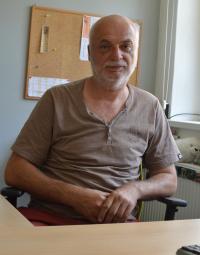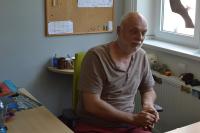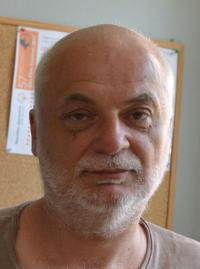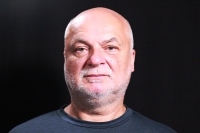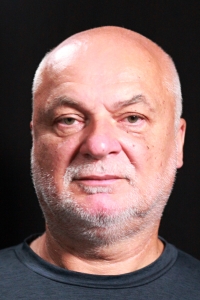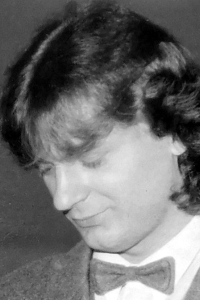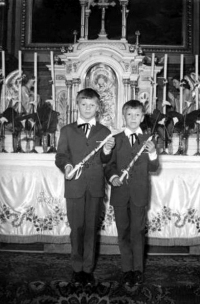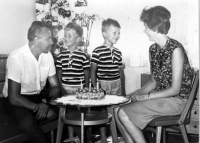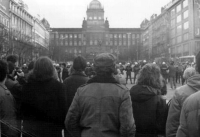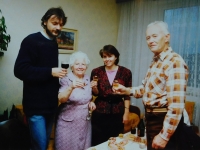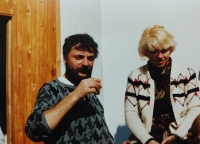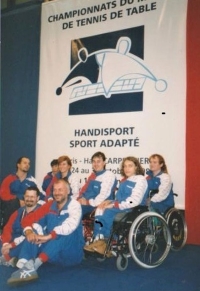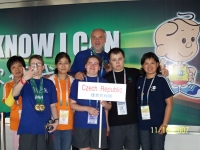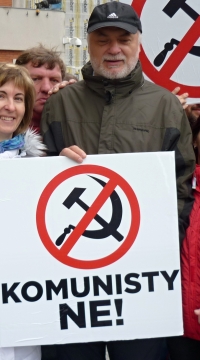The worst thing about the communist regime was that it forced people to lie and be hypocritical

Stáhnout obrázek
Radomír Vítek was born on 16 July 1961 in Zlín, formerly Gottwaldov. His father worked as a worker in a shoe factory Svit, his mother was a director of a kindergarten. He graduated from the Secondary School of Leather Industry in Otrokovice. From the mid-1980s he was involved in dissident activities. He helped with the production and distribution of illegal samizdat printed matter. He was a member of the Society of Friends of the USA (SPUSA). In 1987 he signed Charter 77. He participated in a number of anti-regime actions, including Palach Week in January 1989. He was repeatedly detained and interrogated by state security. He worked in the warehouse of the Kožnak company in Otrokovice. When he was free, he started helping wheelchair users and mentally disabled people. In 2023, he was the head of services for the mentally disabled in the Zlín branch of the non-profit organization Naděje.
